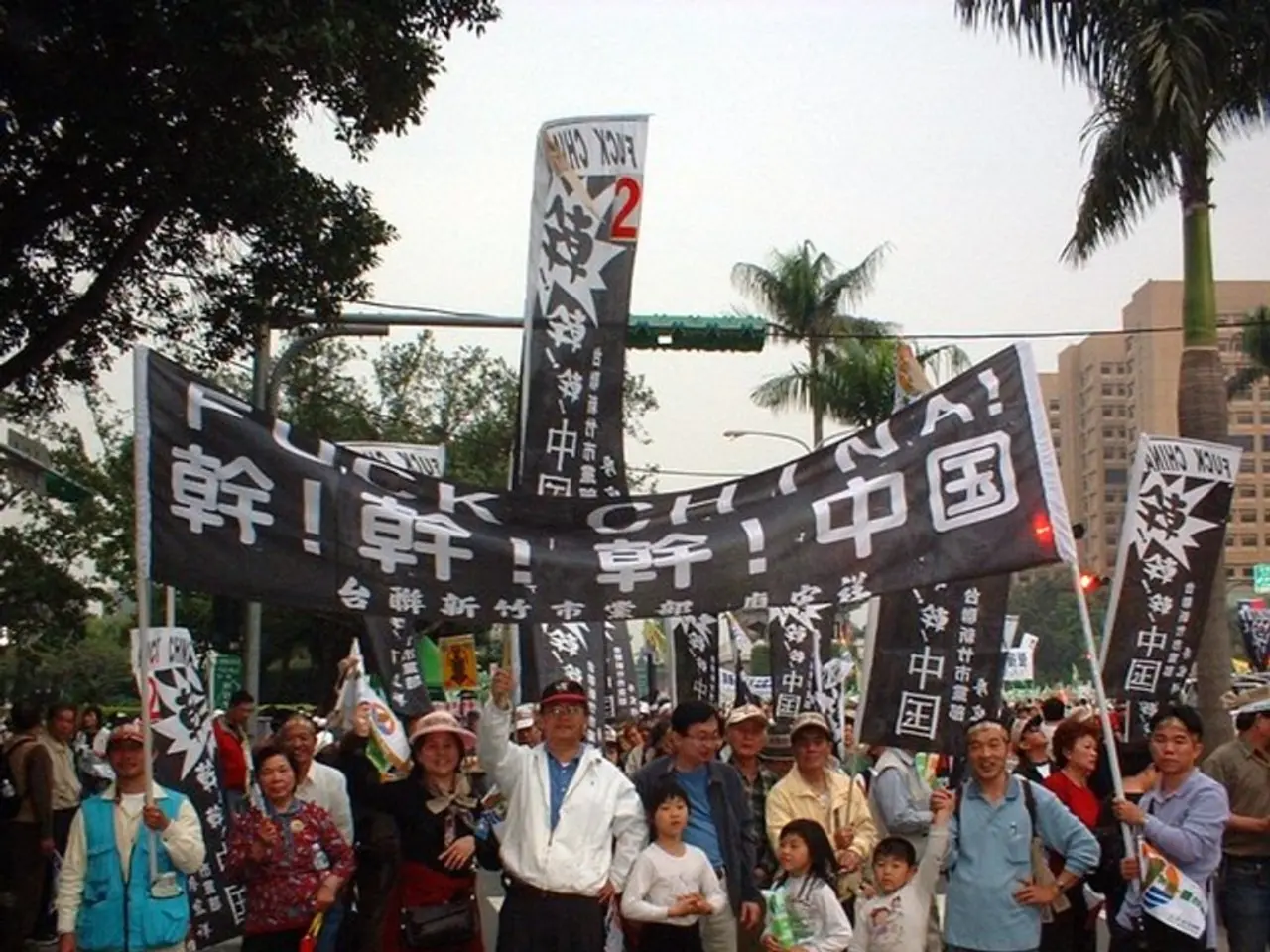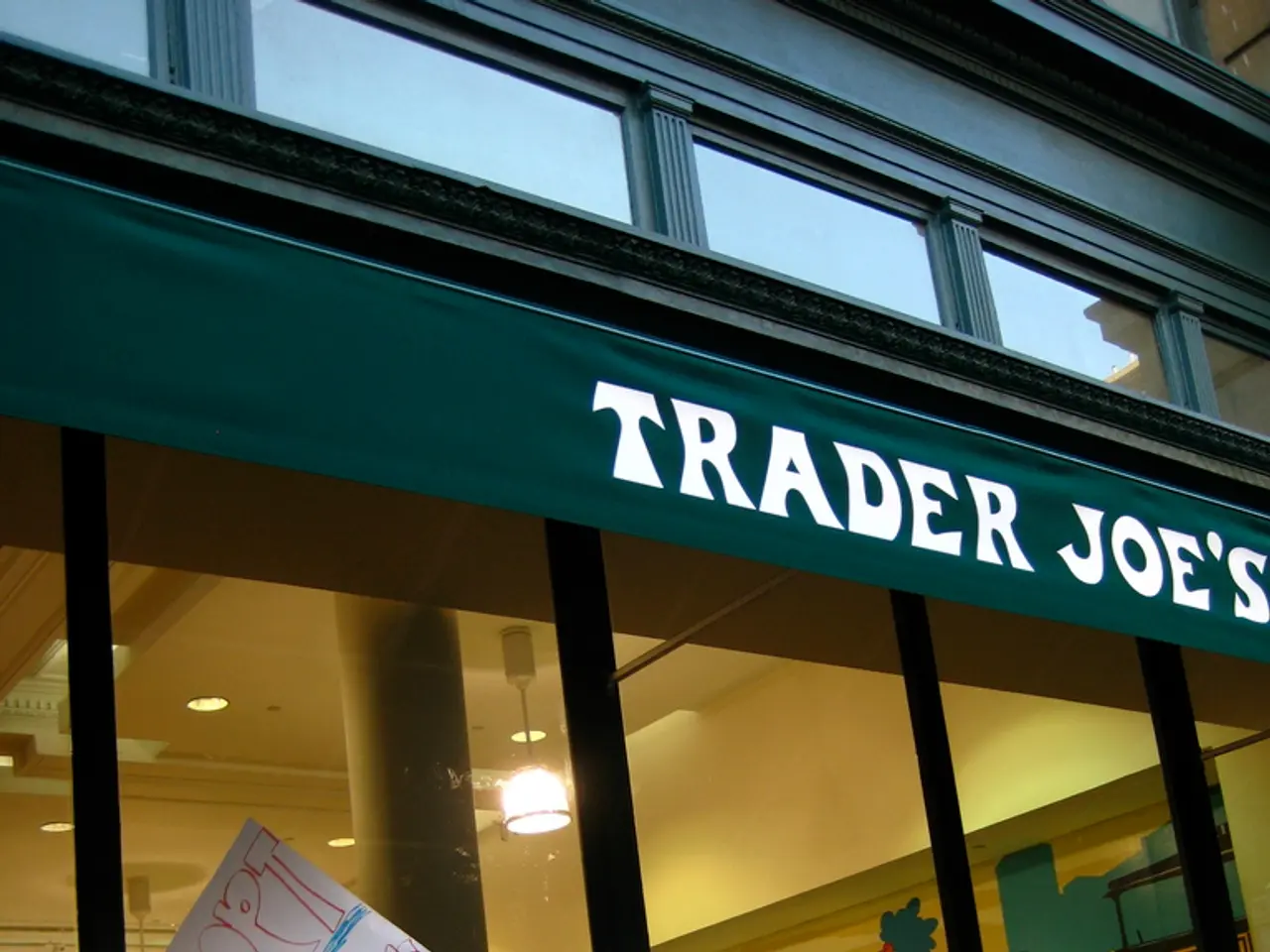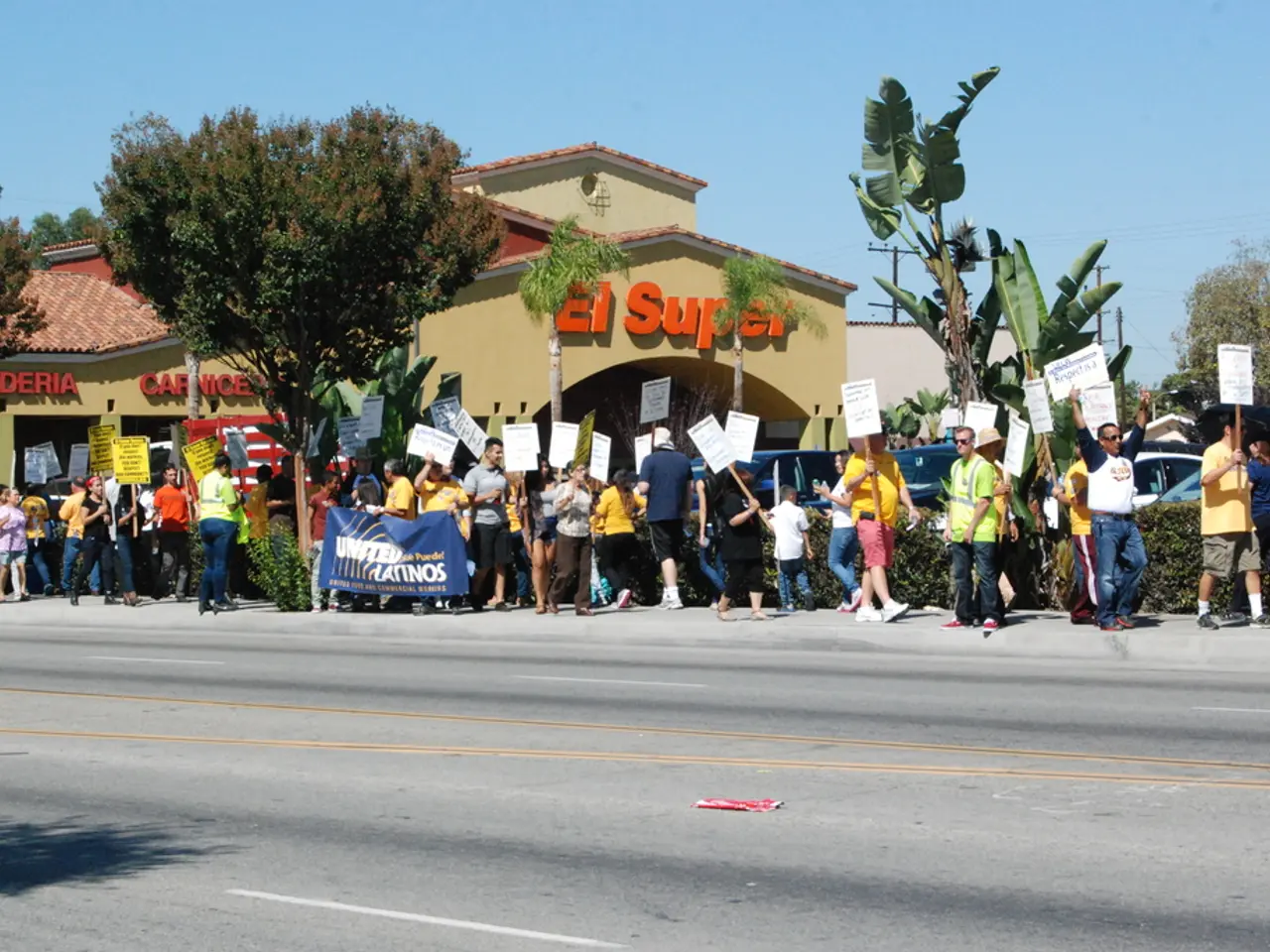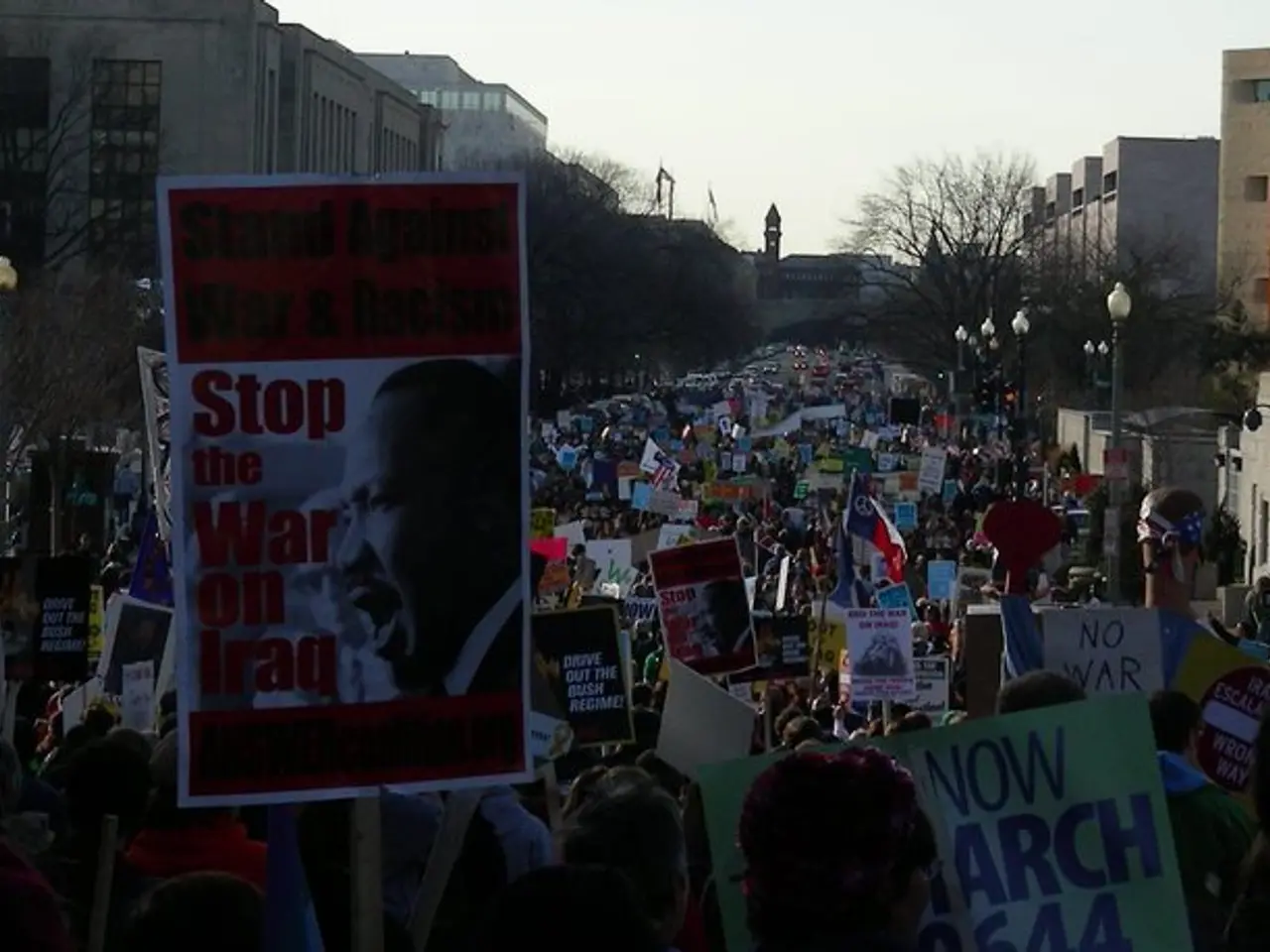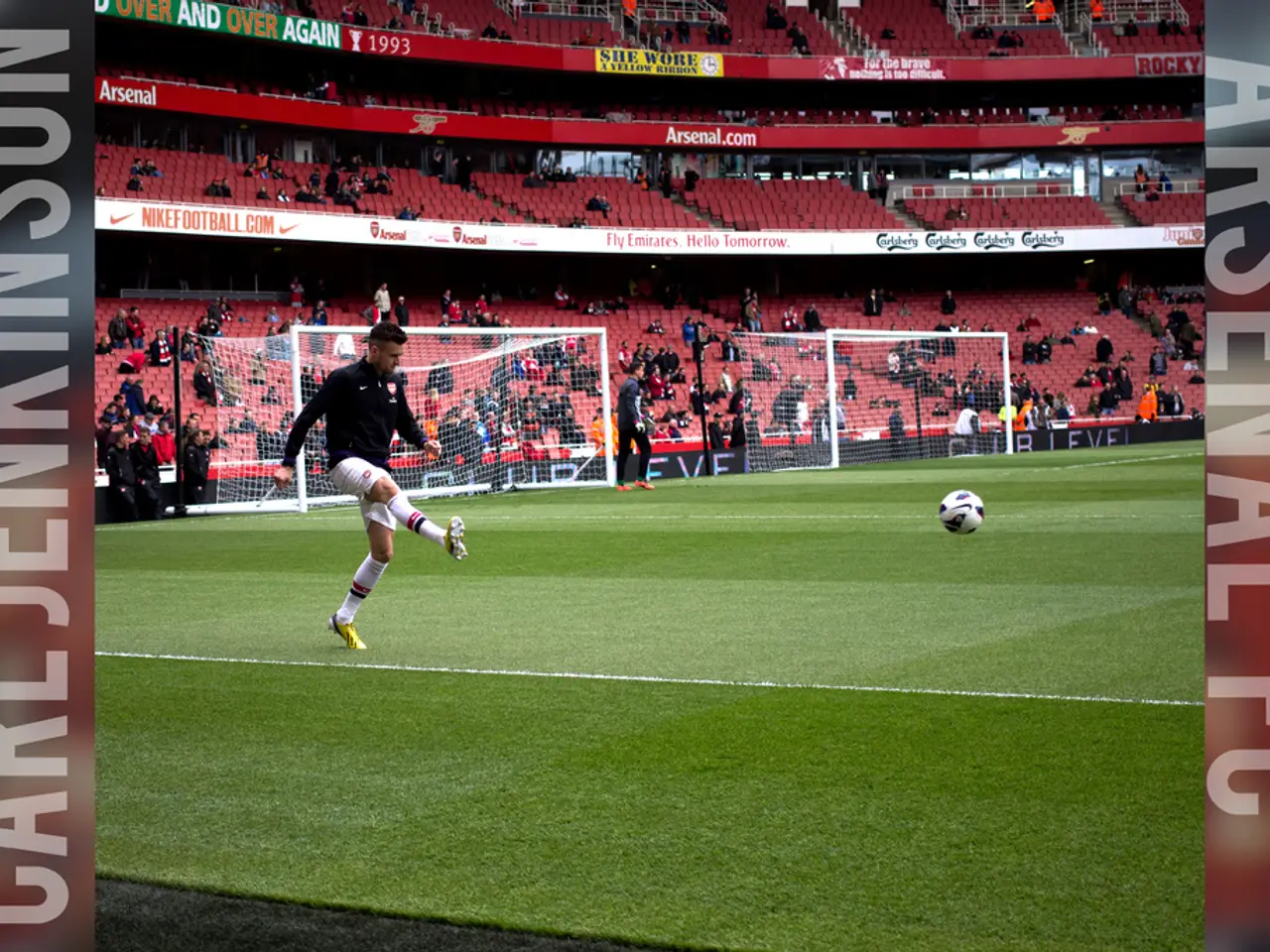UK's Extremist Influencers Fanning Misinformation and Violence Spread via EDL
In the heart of England, the summer of 2024 was marred by a series of violent riots that shook the nation. The unrest began on July 30 in Southport, sparked by a tragic incident at a Taylor Swift-themed dance event. Three young girls lost their lives in a stabbing attack, and the alleged perpetrator, 17-year-old Axel Rudakubana, was initially misidentified in a wave of misinformation that swept across social media.
False claims quickly spread on the social media platform X, portraying Rudakubana as a Muslim or refugee. However, police confirmed that he was born in Cardiff to Christian parents with no political or religious motive. This disinformation, which reached millions, incited violent anti-Muslim and anti-migrant riots across several UK cities in the following days.
The key players in organizing and amplifying the unrest on social media were far-right influencers and accounts on X. Amnesty International's analysis showed that X's algorithm disproportionately promoted hateful and misleading content, significantly contributing to the scale and intensity of the violence. The platform's inadequate safeguards allowed the rapid spread of false narratives that stoked racial and religious hatred.
The groundwork for the riots was established before the tragic incident, with extensive anti-migrant rhetoric online creating a receptive environment for such unrest. Political factors also played a role, as the rise of the far-right Reform UK party and ongoing immigration concerns increased societal tensions.
The English Defence League (EDL), a far-right movement known for its Islamophobic views, has been identified as a key player in the riots. Tommy Robinson, the leader of the EDL, is currently on holiday in Cyprus. His associates, including Lord Simon, a prolific racist on social media, were among the first to re-share posts falsely identifying the Southport assailant as a Muslim migrant.
In a recent address to the nation, Keir Starmer, the UK's Prime Minister, stated that the violent mob does not represent the country and they will bring them to justice. Several arrests have been made in different cities in relation to the escalating violence.
The BBC has emphasized the role of social media in spreading misinformation and fueling hatred during the riots. As the dust settles, it is clear that social media has played a significant role in this tragic turn of events, demonstrating the urgent need for platforms to address their content ranking algorithms and safeguards to prevent the spread of hateful and misleading content.
[1] Amnesty International. (2024). Social media's role in the Southport riots: A case study. [2] The Guardian. (2024). The rise of the far-right and the Southport riots: A connection. [3] The Independent. (2024). The Southport riots: A timeline of events. [4] BBC News. (2024). The political factors behind the Southport riots. [5] The Economist. (2024). The aftermath of the Southport riots: Far-right violence continues.
[1] Revealing the underlying factors, Amnesty International's study on the Southport riots highlights the significant role of social media platforms, particularly X, in spreading disinformation and stoking racial and religious hatred that fueled the violent riots.
[2] As the Guardian's analysis reveals, the Southport riots were not just a result of the tragedy on July 30; rather, they were the culmination of a tense political climate marked by the rise of far-right parties like Reform UK and extensive anti-migrant rhetoric online, which provided fertile ground for such unrest.
